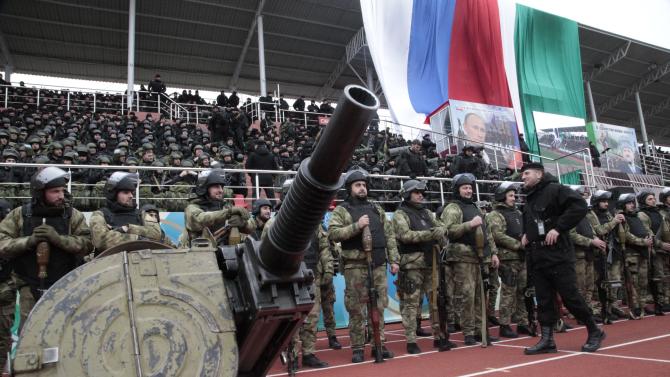
Few Israelis, including
the people who wake up at night to the clatter of Palestinians in Gaza digging
tunnels under their floors, have never heard of Mohammed Al-Emadi. But his importance to
their lives cannot be overestimated, because he is the Persian Gulf Emirate of Qatar’s de facto
ambassador to the Gaza Strip and to Israel.
He is moreover Defense
Minister Moshe Ya’alon’s secret weapon against Hamas’s terror tunnels.
On Monday, Feb.8, Education Minister Naftali Bennett was reported as urging an immediate attack on the Hamas tunnels during a recent security cabinet meeting, of which he is a member.
On Monday, Feb.8, Education Minister Naftali Bennett was reported as urging an immediate attack on the Hamas tunnels during a recent security cabinet meeting, of which he is a member.
The next morning, the
defense minister furiously dismissed his colleague’s demands as “reckless,
childish and irresponsible” and accused him of potentially dragging the country
into war from cynical motives. “War isn’t child’s play and it costs human
lives,” Ya’alon said.
Ya’alon’s unwillingness to
go into action against the Hamas tunnels is not down to the IDF’s inability to
handle the mission, but to the new element in the Israel-Hamas equation:
His cooperation with the Qatari ambassador, who has set up an office in Gaza City.
This office has become the nerve center between two Palestinian organizations,
Hamas and Jihad Islami, and Israel’s defense authorities.
The Qatari envoy’s office processes every message passing between Gaza and Tel Aviv.
For example, after the popular uproar in Israel over the terror tunnels, Israeli media carried reports that Hamas and Islamic Jihad had sent messages to assure Israel that they had no intention of launching a fresh round of warfare.
That message, carried secretly by the Qatari envoy, had two sections that were not published:
The two Palestinian groups asked Israel not to misunderstand their military actions in Gaza because, it was claimed, they were defensive not offensive.
The Qatari envoy’s office processes every message passing between Gaza and Tel Aviv.
For example, after the popular uproar in Israel over the terror tunnels, Israeli media carried reports that Hamas and Islamic Jihad had sent messages to assure Israel that they had no intention of launching a fresh round of warfare.
That message, carried secretly by the Qatari envoy, had two sections that were not published:
The two Palestinian groups asked Israel not to misunderstand their military actions in Gaza because, it was claimed, they were defensive not offensive.
Hamas and the Islamic
Jihad also asked Israel to intercede on their behalf with Egyptian President
Abdel-Fatteh El-Sisi to ease his closure on the Rafah border town, part of
Cairo’s tough crackdown on the two terrorist groups.
Israel did not respond
directly. But on, Monday, Feb. 8, in an interview to the Saudi website “Elaf”,
IDF Maj. Gen. Yoav Mordecai accused Hamas of treating in Gaza
hospitals ISIS-affiliated terrorists who had been injured in Sinai attacks
on Egyptian troops and police officers.
He revealed that, on the
orders of the Hamas military wing, Ezzadin al-Qassem Brigades, those ISIS
casualties were transferred to the Nasser Hospital in Khan Younes through
secret tunnels.
Gen. Mordecai’s implied
message was this: First stop giving ISIS terrorists medical care, then we may
consider putting in a word for you in Cairo.
But according, to my counterterrorism sources, the general held back on two even more serious aspects of Hamas’s secret collusion with Egypt’s archenemy in Sinai.
First, he omitted mention of the flow of Hamas and Islamic Jihad fighters to Sinai, where they were reinforcing the ISIS affiliate against Egypt.
But according, to my counterterrorism sources, the general held back on two even more serious aspects of Hamas’s secret collusion with Egypt’s archenemy in Sinai.
First, he omitted mention of the flow of Hamas and Islamic Jihad fighters to Sinai, where they were reinforcing the ISIS affiliate against Egypt.
Second, he said nothing about
the Hamas-Islamic Jihad’s clandestine deals for the smuggling of weapons
through Sinai into the Gaza Strip, often from Libya.
The Qatari envoy is not just brokering messages between Israel and Gaza. Essential goods in large quantities, including fuel and building materials, are being regularly trucked into the Gaza Strip from Israel. Each consignment must first obtain a stamp of approval from Al-Emadi’s office.
Israel accepted this procedure for three reasons:
The Qatari envoy is not just brokering messages between Israel and Gaza. Essential goods in large quantities, including fuel and building materials, are being regularly trucked into the Gaza Strip from Israel. Each consignment must first obtain a stamp of approval from Al-Emadi’s office.
Israel accepted this procedure for three reasons:
1. Its defense authorities
and the IDF trust the Qatari envoy’s good judgment on the choice of items for
delivery.
2. His office, as
designated representative of the Emirate of Qatar, is responsible for payment
for the goods ordered on the shopping lists its office relays to Tel Aviv. Some
Israeli factories are now exclusively producing goods on those lists, confident
that payment by the emirate is guaranteed.
3. A copy of those shopping
lists is also sent to Cairo. This enables Qatar to keep the Israeli and
Egyptian military authorities in full coordination and abreast of events in
Gaza.
At the same time, Al-Emadi
stays clear of the two Palestinian groups’ military affairs, such as their
infiltration tunnels and missiles. New pictures appearing on Gaza social media
in the last few days show the Qatari ambassador visiting a tunnel, apparently
to find out at first hand what the uproar in Israel was about.
Finally, the importance
can’t be overstated of seriously debating the defense minister’s Gaza policy
and the wisdom of reposing so much trust in the Gulf emirate, whose wider
interests transcend the Israel-Palestinian sphere and include backing for
Syrian rebel groups, some of them Islamic extremist terrorists.
Qatar’s interests also
touch on additional fronts of Palestinian terror, as well as the Syrian
conflict, Iran’s military intervention in Syria and Hizbollah’s role.
The average Israeli has begun gaining the
impression that the defense minister has no answer for addressing the country’s
multiple security threats, other than handing out economic incentives for
inducing its many enemies to refrain from hostilities.Moshe Ya’alon can only blame his own rhetoric for this image. A statement he made in October 2014 marked a turning-point in Israel’s military history. “Hizbollah now has 100,000 missiles in Lebanon, and we are not taking action to destroy them. There are hundreds of missiles in Iran, and we are not making a decision to destroy them,” is what he said at the time. The minister has being making comments in the same vein every since. Dismissing as “reckless and childish” ideas that differ from his passive approach for dealing with the Hamas tunnels, the threats from Syria and the current wave of Palestinian terror, is no answer. Shutting down the debate on these vital issues is more dangerous than airing it.
IDF Chief of Staff Lt. Gen. Gady Eisenkot said Tuesday that the military’s top priority is the elimination of the terror tunnels under construction in the Gaza Strip. “Hamas believes that the ability to secrete operatives in to Israel for terror attacks is a tool of warfare that will make up for its inferior combat capacity against the IDF. Substantial Palestinian assets are therefore being sunk into creating the tunnel system.” Eisenkot went on to say: “We have launched a major operational, technological, intelligence and engineering project to foil this threat, and are open to more initiatives and ideas”
Israeli Prime Minister Netanyahu
said Tuesday that the government is pursuing a multiyear plan for the establishment
of a security fence on all of the country's borders, and will prevent breaches
of the fence in the West Bank. He added that the plan is estimated to cost
billions of shekels so it will take years to be completed. Netanyahu made the
comments during a visit to a section of the security fence under construction
on the Jordanian border.
Syrian sitrep Feb. 9, 2016, click the link below.
https://www.youtube.com/watch?v=OyjNykc0c8Q
Syrian sitrep Feb. 8, 2016, click the link below.
https://www.youtube.com/watch?v=6N6ch9a7RIU
Crisis news Feb. 9, 2016, click the link below.
https://www.youtube.com/watch?v=h_LfBC4js1s
Isaiah 17 says that Damascus shall be a ruinous heap. How close are we to that coming to pass? Click the link below.
https://www.youtube.com/watch?v=1Da56IKPLm8
Few Syrian Christians being admitted to the U.S. Click the link below.
https://www.youtube.com/watch?v=yztNODbpU7Q

Chechen ruler Ramzan Kadyrov, above, said during an appearance on Russian television that Chechen special forces, pictured above with Kadvrov, are fighting alongside Russian troops in Syria, and that they have suffered casualties. He did not specify the location of the deployment or the fronts where they have fought. The Chechen special forces brigades are an integral part of the Russian military as Chechnya is part of Russia. Some of the units, disguised as volunteer fighters, fought in eastern Ukraine in recent months.


No comments:
Post a Comment